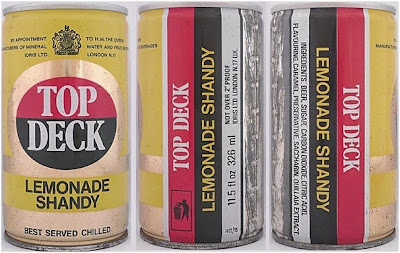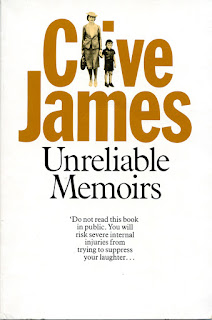(First posted 7th April, 2015)
Indian summer is like a woman. Ripe, hotly passionate, but fickle,
she comes and goes as she pleases so that one is never sure whether she
will come at all, nor for how long she will stay.
“What rubbish?” was my fifteen year-old self’s first thought, but something in that luxuriant opening sentence and the sensuous description of New England’s “lovely womanly Indian summer” enticed me to read just a little further. By the end of the first few pages, with their sprinkling of references to whores, peckers and venereal disease, I decided it might be prudent to study it more discreetly. I looked up the meaning of Indian summer and read on by torchlight under the bedclothes.
In those days, a child reading ‘Peyton Place’, even a fifteen year-old, would have been as shocking as the furore that followed its publication in 1956. The book was banned in Canada until 1958, and even later for the more delicate Australians.
It is tame stuff compared to what children are exposed to now, but, unlike today, our innocence was well-protected. In contrast, our physical safety received little thought. We could wander wild for hours near roads, rivers and railway lines, and climb trees and light fires. Nowadays, things are the other way round. While depravity and consumerism roam free, health and safety are controlled to the point of paranoia. Carefree freedom ran off with childhood innocence.
One affair that illustrates these changes for me is the Top Deck Shandy Pan Books promotion of the 1960s.
It was when I had my first party. Hugo, my foreign-language exchange partner from Belgium, was with us, and around fifty other Belgians and Germans were staying nearby. The party was subject to three parental conditions: (i) numbers were limited and by invitation only; (ii) the bedrooms were out of bounds, enforced by my mother’s washing line wound tightly round the door knobs; and (iii) there would be no alcohol. We were, however, allowed Top Deck Shandy, so we bought in several dozen cans.

What is incredible about Top Deck Shandy is that despite being supposedly a low-alcohol drink marketed to children, it then had an alcohol content of 2% proof (about 1% by volume), equivalent to almost one quarter the strength of beer. Nowadays, it would be illegal to sell it to anyone under the age of eighteen, yet, in the 1960s and 1970s, it could be seen on school trips without any concerns raised by teachers. Things are now so different that children have been excluded from school for innocently taking in cans of perfectly-legal ‘Ben Shaw’s Bitter Shandy’ (0.5%) and shops have refused to sell zero-alcohol wines to pensioners unable to provide proof of age. No one is prepared to risk being accused of promoting under-age drinking.
You would have to drink fifteen cans (5 litres) of today’s ‘Ben Shaw’s Bitter Shandy’ to consume an equivalent amount of alcohol to one bottle of beer. You would probably be sick before you got there.
The party with the Belgians and Germans was brilliant. No one turned up uninvited, no one got drunk, and thanks to Hugo’s popularity with the girls, boys were hugely outnumbered. Nothing got out of control, unlike at a couple of other legendary parties around this time. There were just two consequences. One was that my young brother had to take the next morning off school because he was kept awake very late. The other was that I had several dozen Top Deck Shandy labels. At the time, Top Deck Shandy was running a Pan books promotion. For every six labels you sent off, you could select a free paperback book from a list. I had enough labels for nearly all of them.
I know what I got because they were, until not so long ago, in a box in the loft. My first choices were predictable: ‘The Dam Busters’ by Paul Brickhill, ‘Dr. No’ by Ian Fleming, ‘The Saint Goes On’ by Leslie Charteris and ‘The Satan Bug’ by Ian Stuart (a pseudonym of Alistair MacLean), books I would probably have bought or borrowed from the library anyway. Frank Edward’s bestseller ‘Stranger Than Science’ was another memorable selection, a set of supposedly true accounts of strange events beyond scientific explanation. I’m not ashamed to say I devoured it uncritically. Then, beginning to run out of options, I decided that Nevil Shute’s ‘A Town Like Alice’ was likely to be all right because, after all, he had been the chief engineer building the R100 airship at nearby Howden. It turned out to be a soppy romance but enough of an adventure story to be enjoyable. Lastly, with hardly anything left to choose, I sent for ‘Peyton Place’ by Grace Metalious.

Peyton Place sold 60,000 copies in its first ten days. It has been described as a depiction of life in a small New England town, stark and crude in its search for realism. I thought the small New England town in which it was set might be interestingly like the small Yorkshire town where I lived. It wasn’t.
It goes on quite a lot about straining, such as when, observed from a distance by her husband, the unfaithful Ginny Stearns walks off with a stranger, “... her breasts and thighs straining through her dress to rest against the stranger’s side” (page 81). Then on page 108, when the thirteen year old Allison MacKenzie parades in front of a mirror wearing padded foundation garments “... the top of her new dress swelled magnificently, the fabric straining against her rubber breasts...”
The book is obsessed with breasts. One biographer of Grace Metalious suggests that defining women according to their breasts was only to be expected in an age when Marilyn Monroe, Jane Russell and Jayne Mansfield filled the screens, but feminist ideologies escaped me then. I was simply fascinated that Betty Anderson’s nipples were “always rigid and exciting and the full, firm flesh around them always hot and throbbing” (page 203), and I paid careful attention to the dangers explicit in the scene, when Rodney Harrington, driving a speeding car, takes his hand off the wheel to reach for the hard exposed breasts of his female companion and drives straight under a brightly lit trailer truck (page 314).
I know the page numbers because I noted them down faintly, in pencil, just inside the back cover, so I could find them again. I especially liked page 150 when Michael Kyros rips off Constance MacKenzie’s still wet bathing suit and “... she felt the first red gush of shamed pleasure that lifted her, lifted her, lifted her and then dropped her down into unconsciousness.” It produced strange stirrings in the trouser department.
Clive Anderson said that radio is like television but with better pictures. If this, by extension, applies to novels, it was surely true of Peyton Place. I have never seen either the film or television series it spawned, but I cannot image that five hundred episodes of the 1960s soap could sustain the same intensity, despite having Ryan O’Neal, Dorothy Malone and a very young Mia Farrow. On the 14th August, 1965, around a year after the author, Grace Metalious, drank herself to death at the age of thirty-nine, I noted in my diary it was one of the best books I’d ever read.
Today similarly scandalous tales of drunkenness, incest, rape, abortion, illegitimacy, high-school sex and patricide are everywhere, not least on pre-watershed mainstream television drama set in schools. They leave nothing to the imagination and you are in no doubt that these things could easily occur even in small towns in Yorkshire. Still uglier things, obnoxious and amoral, are widespread on the internet. Peyton Place would hardly count as soft porn now.
Am I mistaken in thinking the world a much kinder place, free and innocent, when you could feel grown-up drinking 2% shandy, and reading Peyton Place under the bedclothes was the height of wickedness?
Notes
- You can download a PDF, Epub or Mobi (Kindle) copy of Peyton Place (and a large number of other public domain books as mentioned in my preceding post) from https://www.fadedpage.com/showbook.php?pid=20160613. Some of the television programmes are on YouTube. The names of the characters differ slightly in the English, American and television versions. - Top Deck Shandy may have had paper labels in the 1960s, as opposed to the printed cans of the 1970s pictured. - This interesting article
touches upon how insidiously our health and safety culture and gender
stereotyping were already beginning to change by the 1970s. - The sale of alcohol in the U.K. is regulated by the 2003 Licensing Act which prohibits the sale of alcoholic drinks stronger than 0.5% by volume to anyone under 18 (see section 191 ‘meaning of alcohol’).









